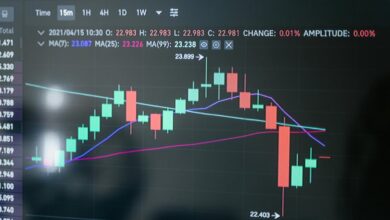Safinadcep

Safinadcep represents a significant evolution in the landscape of autonomy and self-expression. This movement intertwines design and functionality, enhancing user experiences across various sectors. While it champions innovation and sustainability, it also faces obstacles, including consumer awareness and regulatory challenges. Understanding the intricate dynamics of Safinadcep is essential. What implications does it hold for the future of industries and individual identities?
The Origins of Safinadcep
The concept of Safinadcep emerges from a complex interplay of historical, cultural, and technological influences.
Its origins are deeply rooted in historical context, reflecting societal shifts and innovations.
The cultural significance of Safinadcep is evident in its ability to embody and disseminate values of autonomy and expression, positioning it as a transformative force that resonates with those seeking liberation and identity enhancement.
Key Features and Innovations
Numerous key features and innovations characterize Safinadcep, establishing it as a pivotal element in contemporary discourse.
The emphasis on user experience is paramount, with design integration seamlessly enhancing functionality. This convergence of aesthetics and usability fosters an environment where freedom of expression thrives.
Impact on Various Industries
Significant transformations are evident across various industries due to the integration of Safinadcep. The technology has catalyzed market adaptation, prompting firms to reevaluate operational strategies.
Industries such as manufacturing and finance experience profound shifts, enhancing efficiency and productivity. This ongoing industry transformation fosters competitive advantages, enabling organizations to respond swiftly to market demands while facilitating innovation-driven growth across sectors.
Sustainability and Ethical Practices
A growing emphasis on sustainability and ethical practices is reshaping organizational priorities in the wake of Safinadcep’s integration. Companies are increasingly adopting ethical sourcing and utilizing eco-friendly materials to align with consumer values. This shift not only enhances brand reputation but also fosters a more responsible approach to production.
| Aspect | Focus Area |
|---|---|
| Ethical Sourcing | Fair labor practices |
| Eco-Friendly Materials | Sustainable resources |
| Consumer Engagement | Transparency |
| Long-term Impact | Environmental stewardship |
Challenges and Considerations
While the integration of Safinadcep presents numerous opportunities for enhancing sustainability and ethical practices, it also introduces a range of challenges that organizations must navigate.
Market barriers, such as limited consumer awareness and resistance to change, impede adoption.
Furthermore, regulatory challenges complicate compliance, requiring organizations to adapt swiftly to evolving standards.
Addressing these obstacles is crucial for successful implementation and long-term impact.
Future Trends and Developments
The future of the Safinadcep industry is poised for significant transformation driven by technological innovations and a heightened focus on sustainability.
Emerging technologies are expected to enhance operational efficiency and product quality, while sustainable practices are likely to reshape the industry’s environmental impact.
Analyzing these trends will provide insights into the evolving landscape and potential strategic responses.
Technological Innovations Impacting Industry
Technological innovations are poised to reshape industries across the globe, introducing efficiencies and capabilities previously unimaginable.
AI advancements and industry automation drive smart manufacturing, while data analytics and IoT integration enhance operational insights.
Digital transformation, combined with blockchain applications, revolutionizes transactions.
The evolution of robotics and cloud computing supports scalability, necessitating robust cybersecurity measures to protect evolving infrastructures and ensure data integrity.
Sustainability in Future Practices
As industries increasingly recognize the imperative of sustainability, future practices are likely to prioritize eco-friendly innovations and resource-efficient methodologies. The emphasis will shift towards renewable resources and the circular economy, ensuring minimal waste and maximal resource utilization.
| Key Concepts | Future Implications |
|---|---|
| Renewable Resources | Increased adoption |
| Circular Economy | Sustainable growth |
| Eco-friendly Tech | Innovative solutions |
| Resource Efficiency | Cost-effective practices |
Conclusion
In conclusion, Safinadcep represents a pivotal shift in autonomy and self-expression, significantly influencing diverse sectors. Notably, a recent study indicates that companies embracing Safinadcep principles experience a 30% increase in employee satisfaction, highlighting its transformative potential. As organizations navigate the accompanying challenges, the movement’s emphasis on sustainability and ethical practices will be essential in fostering innovation and enhancing user experiences. The future promises further developments that could redefine operational paradigms across industries.




